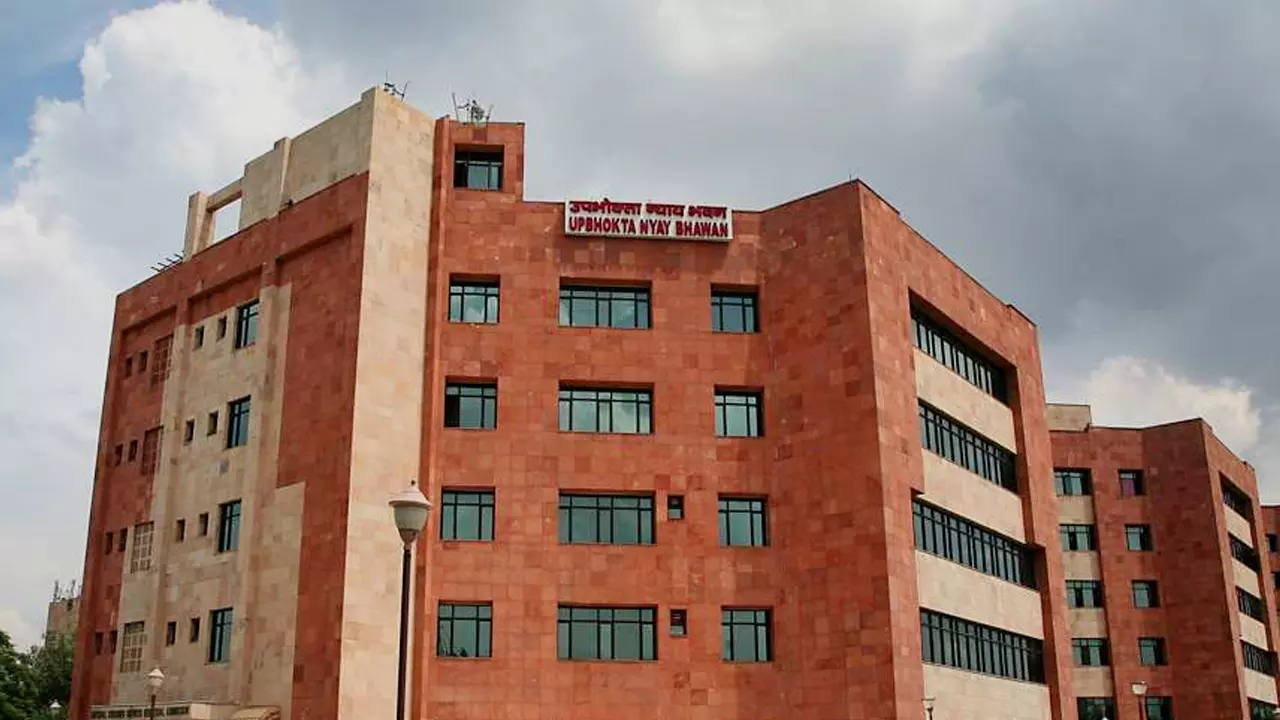- Home
- /
- Consumer Cases
- /
- Section 24 A Aims To Uphold The...
Section 24 A Aims To Uphold The Consumer Protection Act 1986, Ensuring Its Effectiveness By Preventing Prolonged Litigation In Consumer Fora: NCDRC
Ayushi Rani
5 May 2024 4:00 PM GMT
The National Consumer Disputes Redressal Commission, presided by Mr. Subhash Chandra and Dr. Sadhna Shanker(member), held that Section 24 A of the Consumer Protection Act, 1986, serves as a safeguard to the effectiveness of the law by preventing challenges that could unnecessarily prolong cases in Consumer Fora, thus preserving the integrity of the legislation. Brief Facts of the...
The National Consumer Disputes Redressal Commission, presided by Mr. Subhash Chandra and Dr. Sadhna Shanker(member), held that Section 24 A of the Consumer Protection Act, 1986, serves as a safeguard to the effectiveness of the law by preventing challenges that could unnecessarily prolong cases in Consumer Fora, thus preserving the integrity of the legislation.
Brief Facts of the Case
The complaint outlines that Mrs. Sunita Kumar, accompanied by her husband, Mr. Rajeev Kumar, sought medical care during her first pregnancy at the hospital. They covered all medical expenses as requested. Despite normal test results, Mrs. Kumar experienced complications during delivery, leading to undisclosed issues like the newborn being moved to the nursery due to oxygen deficiency and later diagnosed with brain hemorrhage. Alleging medical negligence, they claim the hospital failed to inform them of the complications promptly, did not monitor Mrs. Kumar adequately during delivery, and attributed the child's brain damage to perinatal asphyxia caused by a lack of a pediatrician or negligence. Aggrieved by the same, the complainants filed a complaint with the State Commission of Delhi, which dismissed the complaint. The Complainant has filed a first appeal before this commission but with a delay of 213 days. The complainant argues that the delay was genuine and beyond their control, urging a lenient approach towards condoning it.
Contentions of the Opposite Party
The hospital responded to the complaint, arguing that it was unfounded and made with malicious intent to conceal the complainant's criminal act of abandoning her newborn. They claimed that although there was some distress during delivery, they promptly took resuscitative measures and successfully revived the child. Additionally, they stated that a medical board confirmed the child's fitness for discharge, indicating no negligence on their part.
Observations by the Commission
The Commission observed that the statute of limitations mandates that every day of delay beyond the limitation period must be accounted for, and such explanation should be logical, sensible, and practical to be deemed acceptable. Section 24A of the Consumer Protection Act, 1986, states that a consumer dispute can be filed within two years from the date the cause of action arises. The District Forum, State Commission, or National Commission cannot accept a complaint filed outside of this time frame. The commission remarked that the complainants should have acted promptly to address the issue within the Consumer Protection Act's 30-day appeal period, and the complainant's explanation fails to justify the substantial 213-day delay in completing the appeal process. In the case of State Bank of India vs. B S Agriculture Industries, the Supreme Court held that condoning a delay is not an automatic entitlement, and applicants must provide sufficient reasons that prevented them from approaching the Court or Commission within the stipulated limitation period. Furthermore, in the case of Ram Lal and Ors. vs. Rewa Coalfields Limited, it was emphasized that even after demonstrating sufficient cause, condonation of delay is not guaranteed. The court has discretionary power, considering factors like diligence and bona fides. The burden lies on complainants to justify the delay, with “sufficient cause” defined as circumstances beyond their control, indicating a lack of negligence or bad faith. Each case is evaluated individually, ensuring a judicious exercise of discretion. Additionally, the commission cited the ruling in Anshul Aggarwal Vs. New Okhla Industrial Development Authority, which highlighted the unique aspects of the Consumer Protection Act for Consumer Forums when considering delay condonation applications. It emphasized that Section 24A of the Act sets specific time limits for filing appeals and revisions in consumer cases, aiming for swift resolution of disputes and allowing excessively delayed petitions would undermine this objective.
The commission found no reason to condone the delay and dismissed the appeal.
Case Title: Sunita Kumar Vs. St. Stephen's Hospital
Case Number: F.A. No. 336/2020


